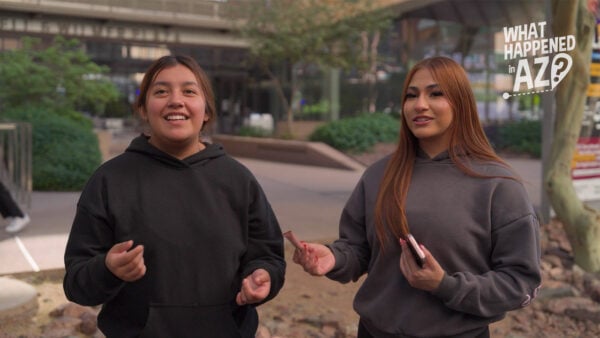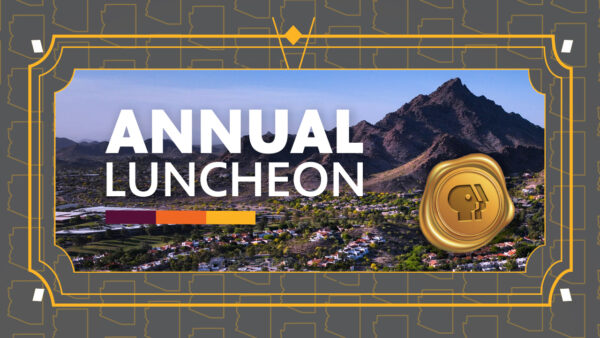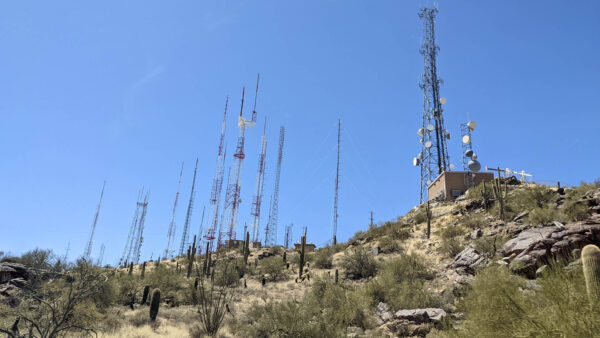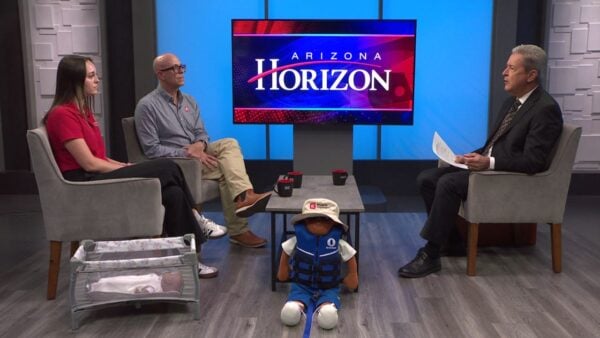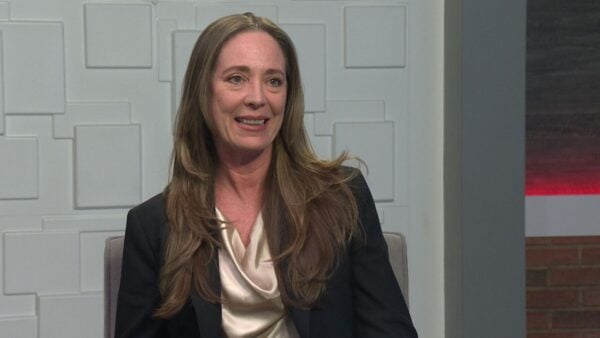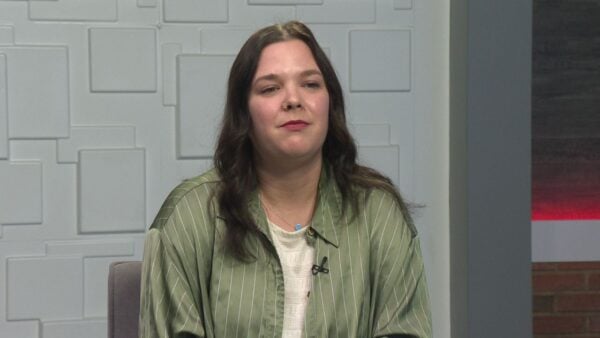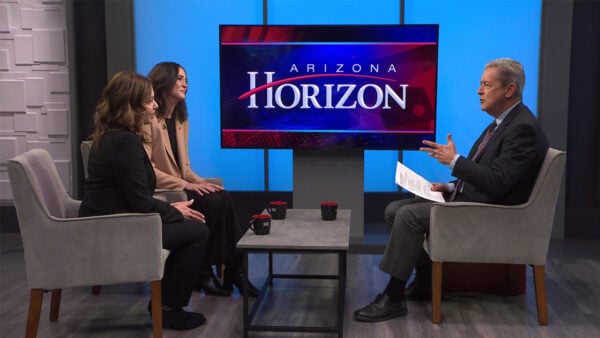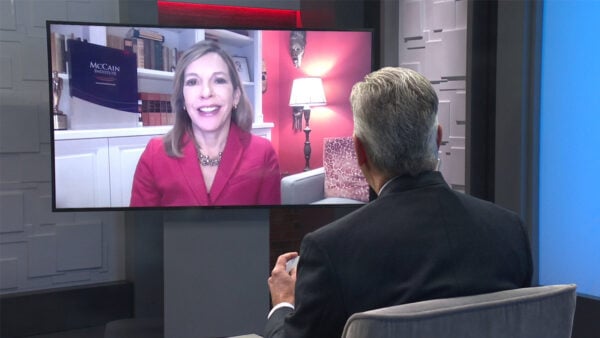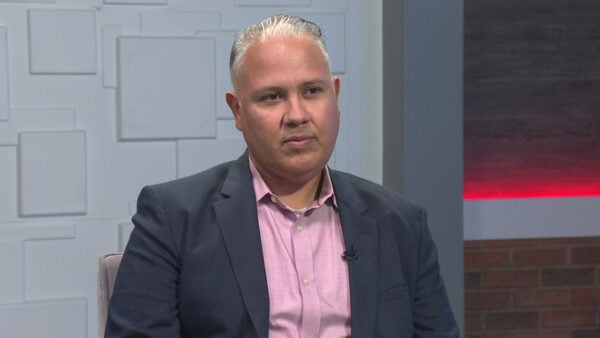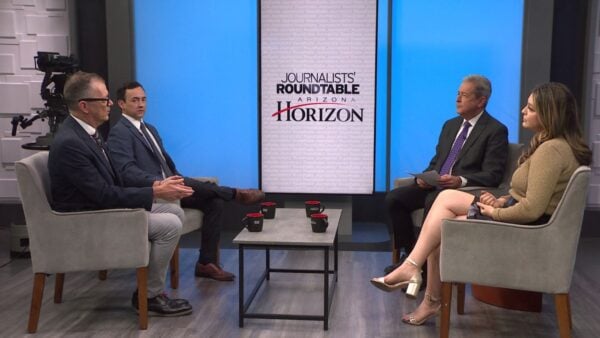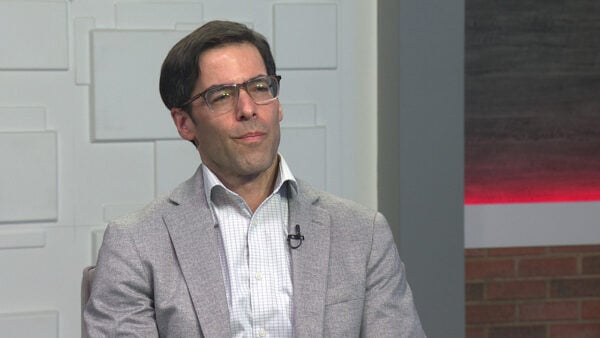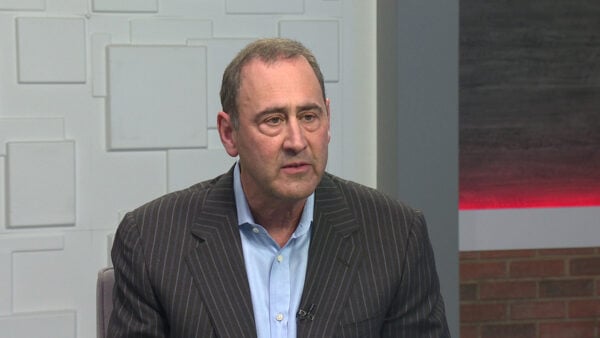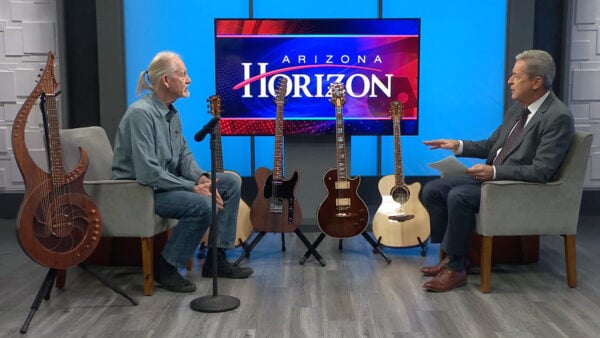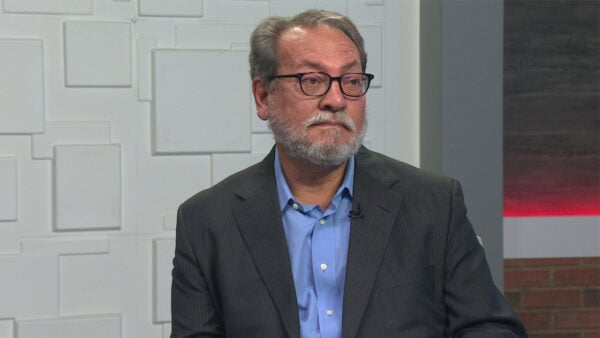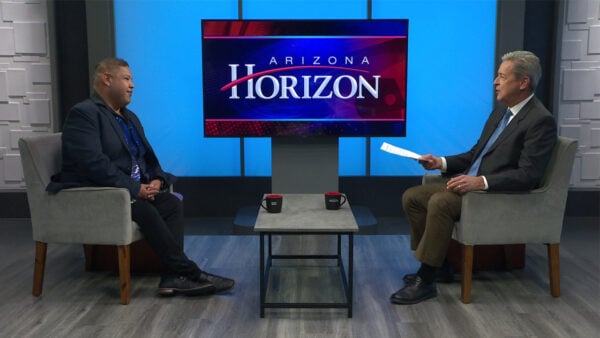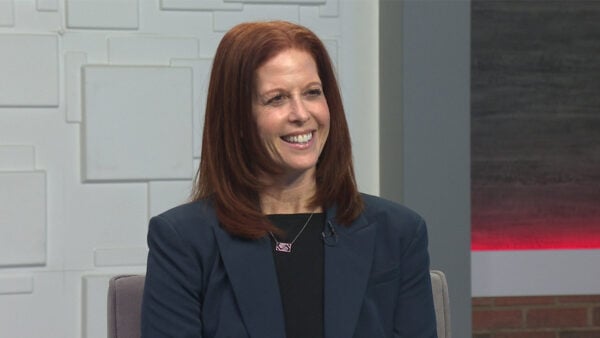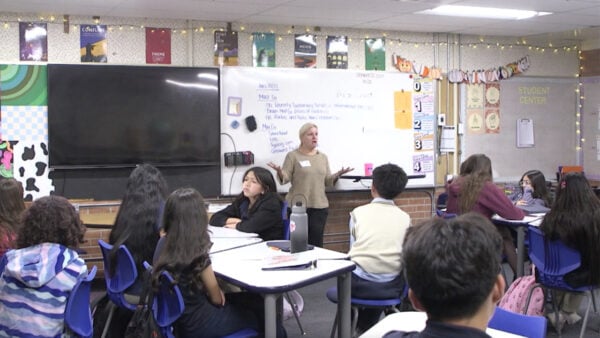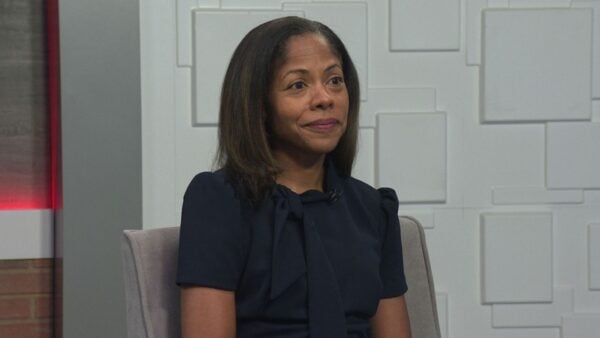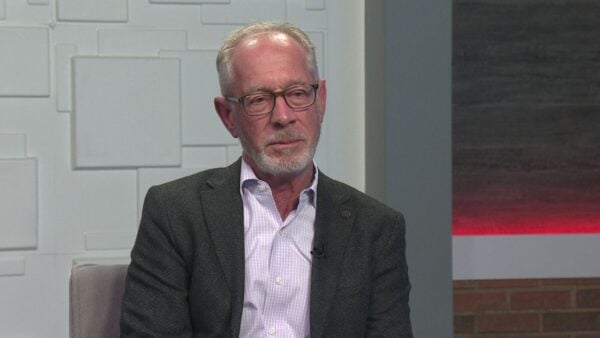A report by Arizona State University’s Center for the Study of Economic Liberty supports a plan by Governor Doug Ducey to increase education funding by the use of funds from the state land trust. Scott Beaulier, executive director of the conservative think tank, will talk about the report.
TED SIMONS: Coming up next on "Arizona Horizon," we'll hear about a new study that supports the idea of increasing payouts from the state land trust to help fund education. We'll visit with Arizona's poet laureate, Alberto Rios. Those stories next on "Arizona Horizon."
VIDEO: "Arizona Horizon" is made possible by contributions from the Friends of Eight, members of your Arizona PBS station. Thank you.
TED SIMONS: Good evening and welcome to "Arizona Horizon," I'm Ted Simons. ASU's Center for the Study of Economic Liberty has released a report that supports the idea of increasing education funding by increasing the pay out from the State Land Trust. Joining us now is the center, executive director Scott Beaulier. Thanks for joining us.
SCOTT BEAULIER: Thanks for having me.
TED SIMONS: What exactly did the report look at?
SCOTT BEAULIER: What we look at is the State Land Trust's performance over the last 10 year, how much they have accumulated in assets and whether or not the way they have managing those assets has been responsible for the people designated, mainly K-12 kids and some students in higher education, as well. What I look at is the fact that there's $5 million in assets in the trust in stocks and bonds also 9 million acres is owned as well. It's only paid out to students about 1.8% per year. One year en 2010 they paid out zero. No dollars came out of the trust to help education at all. I compare that to other states. I look at New Mexico, Nevada, other states have been much more aggressive in payouts. University endowments typically pay ow 4%. In some you're required to pay ow 5%. I would say there's a lot of room to do more for our kids and go from there to discuss the various options on the table.
TED SIMONS: The option is that the governor is pushing his ideas to push the payout to 10% for five years, down to 5% for the next five years. Why is that a good idea as opposed to something a little more prudent? I think we all understand trusts and taking money out of Permanent Funds, you hear it's a rarely a good coyote to take out 10% for any amount of time.
SCOTT BEAULIER: I look at it as an attempt to make up for the very poor payouts for the last 10 years. The students were really done a disservice by horrible financial markets, the worst crisis we've seen since the Great Depression, absolutely volatile market performance. It can be thought of as an attempt to make up for the past generation a little bit. The first five years at 10%, it's a little aggressive. I look at it assay in 2026, even with 10 five, the trust will be no worse. We'll go on autopilot and stay there, thereafter. There's some concern about 2026, do we go back down to 2.5, go to 0%? I would say stay at 5%, do what New Mexico does.
TED SIMONS: Some are looking at 3.4, something along those lines. You mention the Permanent Fund would be pretty much at the same level today in 2025. Some would say that's the problem, it would stay at the same level, not supposed to be doing that. How do you respond?
SCOTT BEAULIER: It would be at the same level but we would have three billion more going to kids, education, teachers, paying down debt at our schools. There would be a lot of benefit paid out from the trust. What do future friends look like for Arizonans and for our country? If you believe the past is any indication of where we're headed, there will be technological advance for the future. All economists agree on that, it's a question of 2 or 3 or 4% growth. If the future's going to be better, we should have more dollars. Why not be more aggressive now, helping kids at this moment. We're 48th in the country with spending.
TED SIMONS: Your report also mentioned that the funds are needed now as opposed to in the future. The future generations won't have as great a need. That's a bit bold, isn't it?
SCOTT BEAULIER: Absolutely, we don't know. We don't know if financial Armageddon done is around the corner. Our best guest from the past is that it's going to be loot better than today. Arizona unanimous have enjoyed a fourfold increase with education. We have air-conditioning. 50 years ago Arizonans didn't have air-conditioning. I think that trend is going to continue, even if it's just a little bit incremental, we ought to be doing more for kids now.
TED SIMONS: Obviously the other side would say Yes that trend could continue. this trend could continue. Inflation has to be adjusted, market trends have to be included. This was based on 6% growth?
SCOTT BEAULIER: I assume 6%.
TED SIMONS: That's pretty bold, too.
SCOTT BEAULIER: It is. 6% market returns on stocks and bonds. The public pensions that are supporting ASU and other endowments, assume 8% returns. I felt like I was conservative there. I used 6% and take ow inflation because it just get confusing talking about inflation. 6 is a very safe rate of return assumption.
TED SIMONS: And you're saying that 4%, each 5%, that would make sense, as well. But you still like the idea of 10% for five years?
SCOTT BEAULIER: I do. I'm comfortable with it, in that the endowment will still be about where it is now and we could put such a large amount of money, such an injection into our schools. The damage done thanks to the low payouts the last 10 years has been just tremendous. But look at how far behind we are, we're not attracting business because of our labor force quality. That's code for we don't have an educated demographic, let's retain teachers. Teachers are staying less than two years in the schools. This could help with that, as well. It's a big push or injection I think we really need.
TED SIMONS: You mentioned how damaging it has been done because of hits to the fund. Critics say this fund is not meant to replace taxes, there's that word taxes there -- for education funding. Do they have a point?
SCOTT BEAULIER: They do. I am agnostic on what the ideal level of education spending is what, taxes may need to look like to support education fully. I'm really interested in the trust being managed properly. Get it in line with what other states are doing. Even state treasurer DeWit agrees. He says let's get it up to 3.75. Let's move it up. Any move up is an improvement over where we are now and go from there. So I think that the bigger question of how do we fund education with all of these various sources of funding and these various plans, that's for a lot of different stakeholders. I'm just really focused on the trust piece and getting that right.
TED SIMONS: And you mentioned state treasurer DeWit, he has called -- obviously it's the Governor's idea. He's called it irresponsible and obviously he and the governor don't agree on this to say the least. Are we approaching - to say 6% growth, 10% for 10 years, we're talking about something that's meant for perpetuity. Does he have a point?
SCOTT BEAULIER: I don't think so. In the sense that if you look at the long term health of that endowment and the intent of the trust, which is to maximize the benefits for the kids, you have to look at a dynamic picture over time. We have not been maximizing the benefit of the kids for the last 10 years. Something really should be done about that. I think the Governor's proposals are not irresponsible, but reparations essentially for really bad damage we've done to our state. That's my take away. Whether it completes the endowment a little bit, I'm not that concerned about, if we can help kids out now. The endowment size is not as important to me as just getting money released.
TED SIMONS: Last point on this, the center for the study of economic liberty is funded in part by the Koch brothers, correct?
SCOTT BEAULIER: Yes.
TED SIMONS: And the center has an agenda because it is funded in part by the Koch brothers. Is that a valid argument?
SCOTT BEAULIER: I don't think so. It would be like saying the supporters of horizon television are somehow affecting your broadcast decisions. It's really -- in this case I have no idea what the Koch foundation thinks about the study. They are supporting philosophers and political economists around the country to engage students with ideas that are relevant, helping kids out to help our state. That's the message of my study. I have no idea what the Koch as think about that. It's absurd to say our study is being driven through on ideological lens. This is money trying to make a difference in students' lives at ASU and in the community's lives. Giving money and just trying to help the conversation.
TED SIMONS: So no agenda?
SCOTT BEAULIER: I mean, the agenda is, you know, wanting to contribute to a discussion of ideas. As much as a lot of other people's agendas are supporting music, athletics and many other things.
TED SIMONS: I appreciate the discussion, good to have you here. Thanks for joining us.
SCOTT BEAULIER: Great to be here. Yep.
Scott Beaulier: Executive Director of the Center for the Study of Economic Liberty
